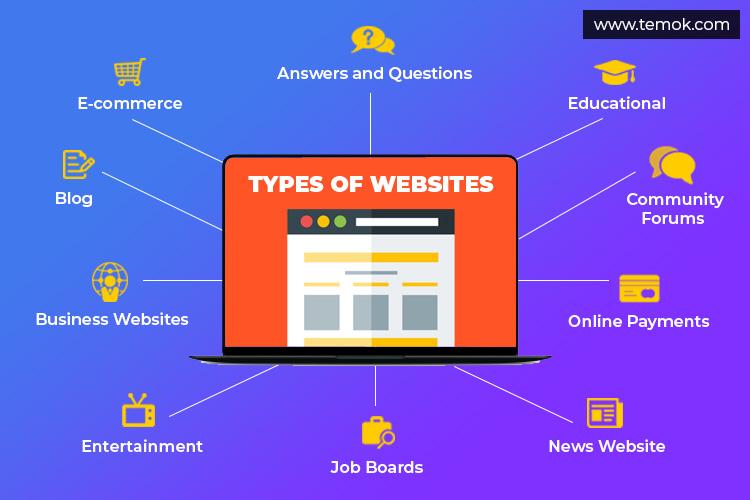Table of Contents
- Understanding the Concept of Website Flipping and Its Advantages
- Essential Skills and Knowledge Required for Successful Website Flipping
- Tips for Identifying Profitable Websites to Buy and Flip
- Strategies for Enhancing Website Value Before Reselling
- Navigating the Sales Process: How to Successfully Sell Your Flipped Website
- Q&A
- Key Takeaways


Understanding the Concept of Website Flipping and Its Advantages
Website flipping is a growing trend in the digital economy, allowing savvy investors to buy, enhance, and sell websites for a profit. Essentially, this practice involves identifying underperforming or undervalued websites, implementing strategic improvements, and eventually reselling them at a higher price. The potential for monetization is vast, ranging from increasing traffic and ad revenue to optimizing for better SEO and user experience. As a result, flipping websites can be a lucrative venture that aligns perfectly with those looking to diversify their income streams.
One of the significant advantages of this approach is the flexibility it offers. Investors can choose to flip websites in various niches, tailoring their efforts to fit their skills and interests. The ability to work remotely adds to this flexibility, as you can engage in website flipping from anywhere with an internet connection. Additionally, the relatively low startup costs compared to traditional businesses make it accessible for many people. Whether you’re a seasoned digital entrepreneur or a newcomer, this marketplace offers numerous opportunities to generate income.
Moreover, website flipping fosters a culture of continuous learning. Each flip presents a unique set of challenges that can enhance your skills in web development, digital marketing, and content creation. By analyzing market trends and consumer behavior, you’ll develop a keen understanding of what makes a website successful. As you navigate through this process, your expertise will grow, leading to more informed decisions in future flips and potentially higher profit margins. The combination of creativity and analytical thinking makes this an engaging endeavor that keeps you on your toes.
Essential Skills and Knowledge Required for Successful Website Flipping
Website flipping is not just about buying and selling websites; it requires a diverse set of skills and knowledge that can significantly enhance profitability. A fundamental skill is web development knowledge. Understanding HTML, CSS, and occasionally JavaScript is crucial for making necessary adjustments and enhancements to existing sites. Moreover, a grasp of popular Content Management Systems (CMS) like WordPress or Shopify allows for smoother transitions, custom modifications, and overall better management of websites.
Another essential skill is digital marketing acumen. This includes proficiency in SEO, social media marketing, and PPC (Pay-Per-Click) advertising. By understanding how to attract traffic and improve search engine rankings, flippers can increase a site’s value dramatically. Key areas to focus on include:
- Keyword Research
- On-Page SEO Techniques
- Content Marketing Strategies
- Social Media Engagement
Lastly, having a strong understanding of analytics and valuation metrics is vital in determining when to buy or sell a website. Familiarity with tools like Google Analytics and social media insights helps assess traffic patterns and user engagement. By doing so, investors can make informed decisions and accurately evaluate a site’s worth based on:
| Metric | Importance |
|---|---|
| Traffic Volume | Indicates potential revenue and growth opportunities |
| Domain Authority | Helps predict how well a site can rank on search engines |
| Revenue Streams | Shows financial viability and returns on investment |


Tips for Identifying Profitable Websites to Buy and Flip
When diving into the world of purchasing and flipping websites, it’s crucial to have a keen eye for details. Start by analyzing the website’s traffic data. Utilize tools like Google Analytics to assess visitor numbers, bounce rates, and demographics. Understanding the source of traffic—whether it’s organic, direct, or referral—can help determine the site’s growth potential. Look for websites with a consistent monthly traffic pattern, as spikes can often indicate unpredictable previous ownership or seasonal content that may not continue to attract visitors.
Next, evaluate the monetization methods that the website currently employs. A site generating income through ads, affiliate marketing, or subscription models can indicate proven profitability. Investigate the earning potential by checking factors like the average revenue per visitor and conversion rates. It’s essential to identify any weaknesses in these monetization strategies, as well as opportunities for improvement. Here’s a quick checklist to help with your assessment:
- Is the income steady or erratic?
- Are there untapped monetization opportunities?
- How does the current revenue compare to the market average?
- What is the cost of maintaining the website?
pay attention to the site’s SEO health. Websites with strong search engine optimization are more likely to maintain and grow their traffic over time. Use tools such as SEMrush or Ahrefs to audit the site’s backlink profile and keyword rankings. A healthy website typically has a diverse range of backlinks from reputable sources and ranks well for multiple relevant keywords. Below is a simple table summarizing what to look for in a potential website:
| Criteria | What to Check |
|---|---|
| Traffic Analytics | Monthly visits, bounce rate |
| Revenue Streams | Ads, affiliate links, subscriptions |
| SEO Factors | Keyword rankings, backlink profile |


Strategies for Enhancing Website Value Before Reselling
To maximize the value of your website before flipping it, focus on improving the overall user experience. Enhance your website’s design and functionality to make it visually appealing and easy to navigate. A few effective strategies include:
- Responsive Design: Ensure your website is mobile-friendly to cater to a broader audience.
- Fast Loading Times: Optimize images and reduce unnecessary plugins to improve speed.
- Intuitive Navigation: Simplify menus and categorize content for easier access.
Content is king, and high-quality, relevant content can significantly elevate your website’s appeal. Regularly update your blog and other pages to keep them fresh and engaging. Consider implementing the following content strategies:
- SEO Optimization: Incorporate relevant keywords throughout your posts to boost visibility.
- Value-Driven Posts: Provide actionable insights or solutions that target your audience’s pain points.
- Guest Contributions: Encourage guest bloggers to add variety and depth to your content.
enhance your website’s credibility by building a robust online presence. This includes optimizing your social media profiles and encouraging user engagement. Here’s a quick overview of tactics to consider:
| Strategy | Description |
|---|---|
| Social Media Engagement | Regularly share your content and interact with followers to build a community. |
| User Testimonials | Display positive reviews and case studies to establish trust. |
| Backlinking | Partner with other reputable sites to gain links and improve authority. |


Navigating the Sales Process: How to Successfully Sell Your Flipped Website
Successfully selling your flipped website involves a delicate blend of preparation, marketing, and negotiation. Before you launch your website on the market, take the time to analyze its strengths and weaknesses. Conduct a thorough audit to understand metrics such as traffic, revenue, and user engagement. This will not only help you set a reasonable asking price but also equip you with the information needed to present your site in the best light to potential buyers.
Once your website is ready for sale, focus on building a solid marketing plan. Consider these strategies as part of your outreach:
- Utilize online marketplaces like Flippa and Empire Flippers, which specialize in website transactions.
- Leverage social media platforms and relevant forums to reach interested buyers.
- Craft a compelling sales page that highlights your website’s unique features and growth potential.
During the negotiation phase, it’s crucial to maintain transparency and be prepared to answer any questions prospective buyers may have. Keep these tips in mind to foster a smooth negotiation:
- Be honest about your website’s performance and any challenges it may face.
- Be open to reasonable offers but set a minimum price to avoid undervaluing your work.
- Establish a clear transition plan for the new owner, including guidance on managing the site and ongoing support.
Q&A
Q&A on Website Flipping Jobs
Q1: What exactly is website flipping? A: Website flipping is the process of buying, improving, and selling websites for a profit. Just like real estate flipping, the goal is to enhance the site’s value through design upgrades, content improvements, SEO optimization, or increasing traffic, and then selling it at a higher price.Q2: How do I find websites to flip? A: Websites can be sourced from various platforms like Flippa, Empire Flippers, or through direct outreach to businesses that might not be maximizing their online presence. It’s essential to look for sites that have potential for growth rather than those that are already performing excellently.
Q3: What skills do I need to be successful in website flipping? A: A diverse skill set is beneficial for website flipping. Key skills include a solid understanding of SEO, basic web design/development knowledge, content creation, and analytics skills to assess traffic and conversion rates. Additionally, sharp negotiation skills can help in both buying and selling domains.
Q4: How much money do I need to start website flipping? A: The amount you need to start can vary widely. Some flip websites for as little as a couple of hundred dollars, while others may require thousands. It’s best to start small, learn the ropes, and gradually invest more as you gain experience and confidence.
Q5: What are the risks involved in website flipping? A: Like any investment, flipping websites comes with risks. Websites can decrease in value due to poor traffic or changes in market demand. Additionally, unforeseen costs associated with website improvements can arise, so it’s essential to conduct thorough due diligence before purchasing a site.
Q6: How can I increase the value of a website before selling it? A: To boost a website’s value, focus on enhancing its content quality, improving user experience, optimizing for search engines, increasing traffic through digital marketing strategies, and establishing consistent revenue streams. The more attractive and profitable the site, the better price you can demand.
Q7: Is website flipping a sustainable long-term career? A: While some individuals have made a successful career from website flipping, it may not be widely sustainable due to market fluctuations and competition. However, for those willing to adapt and learn continuously, it can be a viable side hustle or full-time business.
Q8: Do I need to pay taxes on profits from website flipping? A: Yes, profits from website flipping are generally considered income and are subject to taxation. It’s advisable to consult with a tax professional to understand your obligations and ensure compliance with local regulations regarding business income.
Q9: Where can I learn more about website flipping? A: There are numerous resources available online, including blogs, YouTube channels, and forums dedicated to website flipping. Additionally, online courses can provide structured learning paths and networking opportunities with other flippers.
Q10: Can I flip websites without technical skills? A: While basic technical skills can significantly enhance your flipping potential, it’s possible to leverage tools and hire freelancers for aspects like design and SEO. As you gain experience, you’ll develop a better understanding of where to invest your efforts and resources.
Engaging in website flipping can be an exciting venture for those eager to dive into the digital marketplace. With the right research, skills, and patience, anyone can potentially turn this into a lucrative opportunity.

